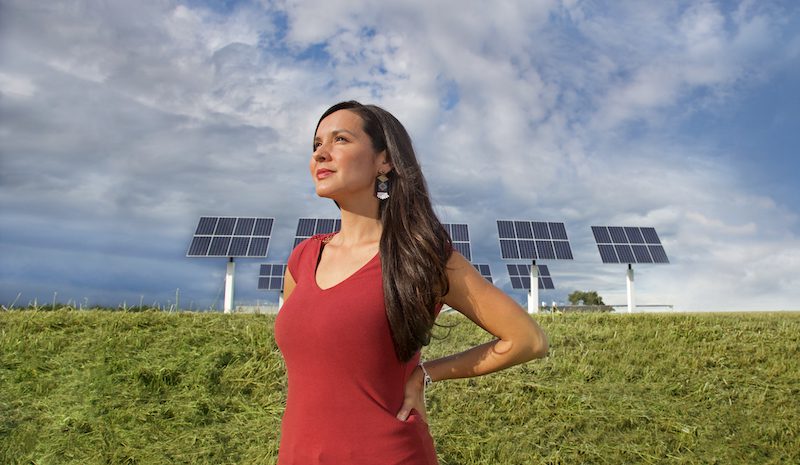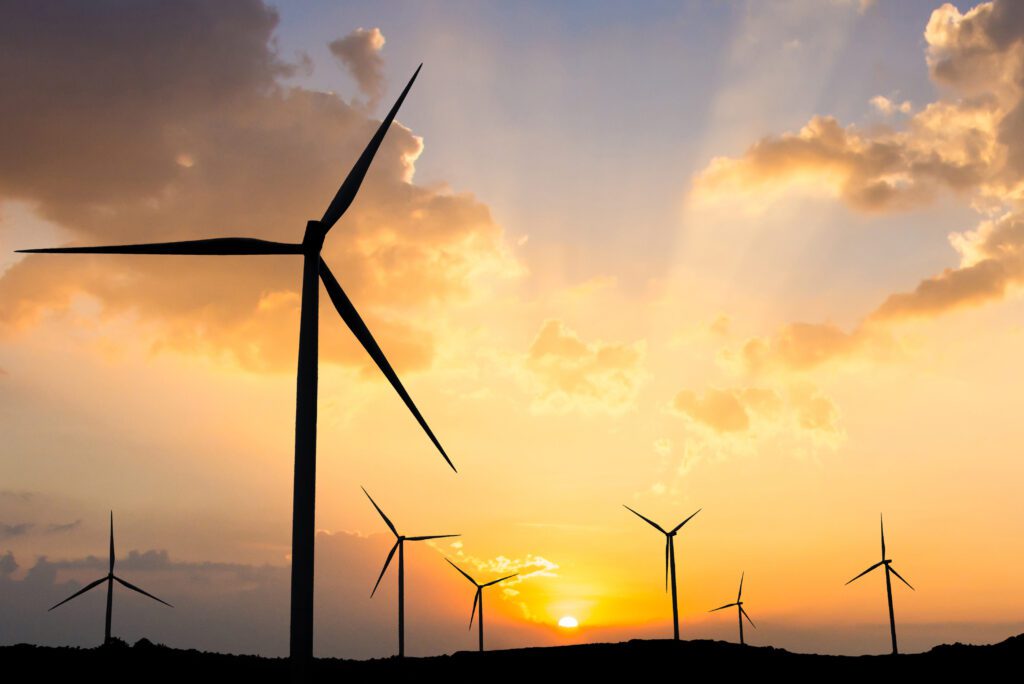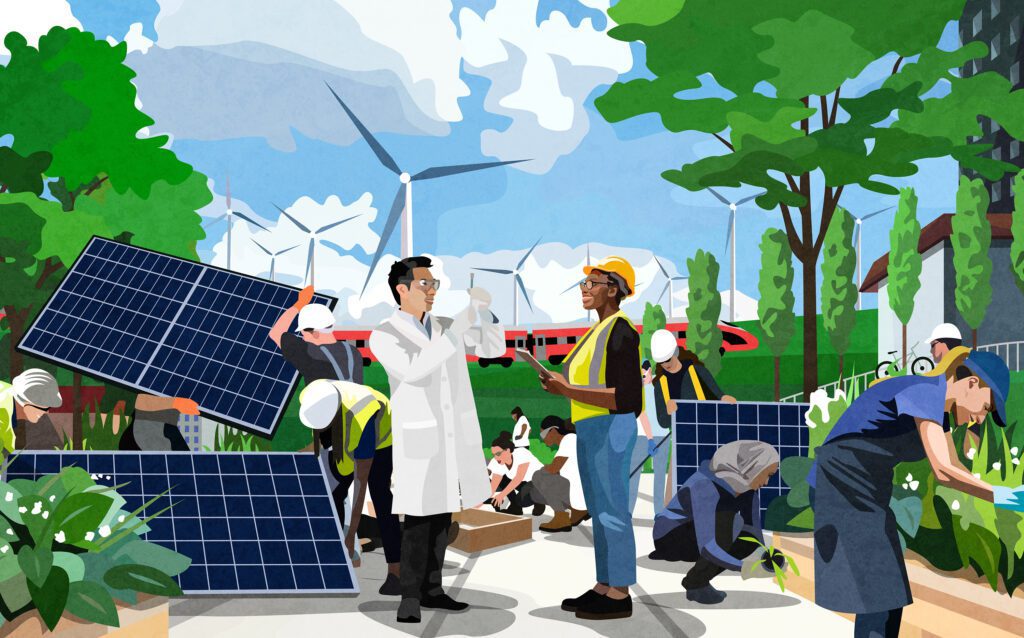The era of renewable energy is knocking at the door. In this year’s edition of World Energy Outlook, the International Energy Agency showed that with the rapid roll out of renewable energy technologies, the demand for fossil fuels – gas, coal and oil – will peak this decade.
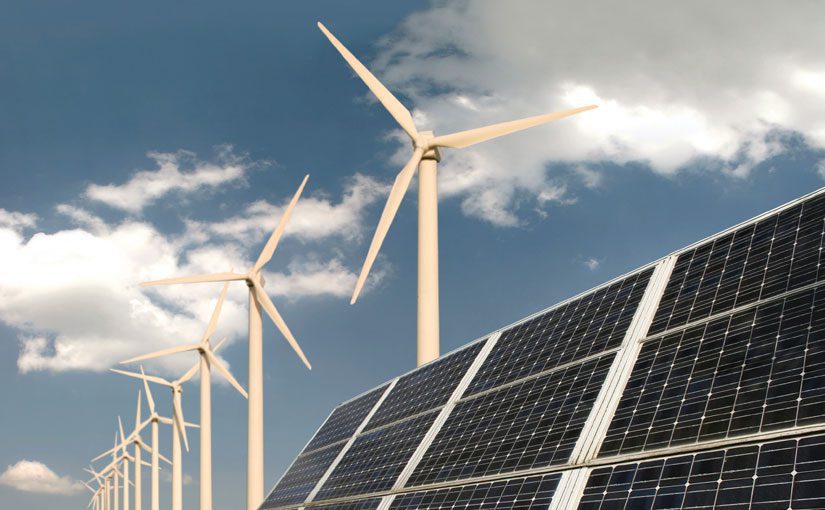

The world is moving away from fossil fuels, not only to protect our climate but also because it is cheaper to switch to renewable energy sources. However, whether Canada is prepared for the transition or continues to prop up a dying fossil fuel industry very much depends on what the federal government does in the coming months.
The International Energy Agency and the World Energy Outlook
What is the International Energy Agency (IEA)? The IEA is a global body of leading experts on energy modelling and analysis. Every year they release a report, the World Energy Outlook, which provides in-depth analysis and insights on the global energy system. The findings of the IEA are used by both the public (government) and private sectors when making important decisions.
In this year’s World Energy Outlook report, the IEA showed a peak in demand in fossil fuels this decade due to the rise in clean energy technologies. Not only that, but the share of fossil fuels in our global energy supply is also decreasing because of clean energy.
This is a big deal. Despite the claims from the fossil fuel industry that the world will stay hooked on fossil fuels for decades to come, the projections from the IEA show that this polluting industry’s days are numbered.. The impacts on our environment, our climate and our health from producing and burning fossil fuels are well known. This year, people in Canada experienced firsthand the catastrophic wildfire season that engulfed the country in flames and smoke, and destroyed numerous communities and livelihoods. These wildfires are the result of producing and burning fossil fuels.
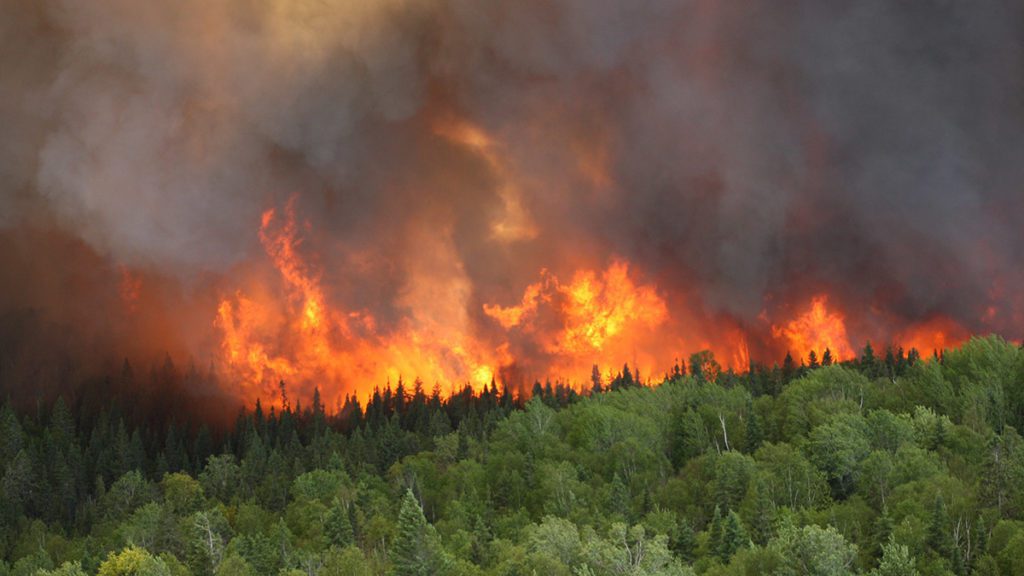

Although the demand for fossil fuels will peak and decline in the coming years, we are not yet in the clear.. The world’s (and Canada’s) current policies to reduce greenhouse gas emissions are not ambitious enough. In fact, the projected global temperature at the end of the century will be 2.4 degrees in this scenario – far from the 1.5-degree threshold that is needed to avoid the most catastrophic climate impacts. It is clear that countries like Canada need to increase their ambition and urgency when it comes to enacting climate and energy policies, phasing out fossil fuels and increasing investment in renewable energy.
In the report, the IEA warns that although it is still possible to limit temperature rise to 1.5 degrees, mainly by going big on solar, wind, heat pumps and electric vehicles. However, further expansion of fossil fuels, as many countries are still planning, will make it nearly impossible to limit temperature rise to 1.5 degrees. Governments across the world must heed this warning.
What does this mean for Canada?
The Government of Canada has committed to reduce Canada’s greenhouse gas emissions by 40-45 per cent from 2005 levels, by 2030. For Canada to meet this target, it must address the elephant in the room – emissions from the oil and gas industry. Over the years, this industry has continued to be the biggest polluter in the country – now accounting for nearly 30 per cent of Canada’s annual greenhouse gas emissions. Oil and gas pollution continue to rise, year after year, even while other industries have been able to decrease their emissions.
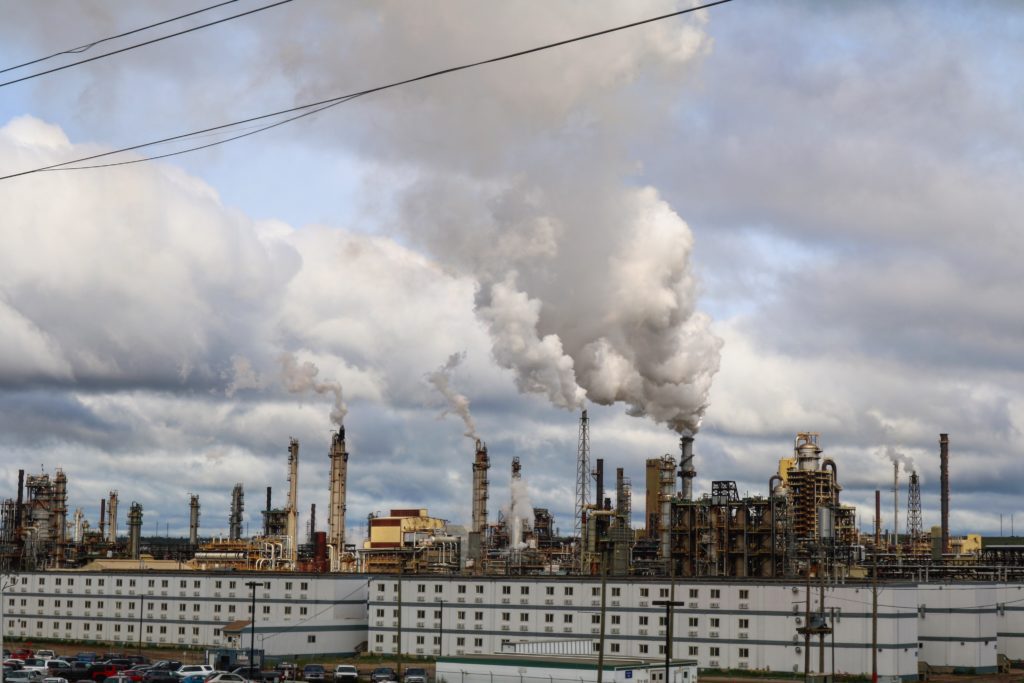

In 2021, the federal government promised to limit and reduce emissions from oil and gas production in line with Canada’s climate commitments. Since then, there have been no regulations released – in fact this policy has faced continued delays and pushback from the oil and gas industry. Ironically, numerous oil and gas companies have publicly committed their support for meeting Canada’s climate targets. I guess their commitments are less meaningful behind closed doors.
Regardless of the pushback from the oil and gas industry, the Government of Canada needs to immediately move forward with the proposed oil and gas emissions cap that has the ambition needed to address the climate crisis. Without a robust emissions cap on oil and gas production, Canada has no chance of meeting its climate commitments.
Capping emissions from the fossil fuel industry is just the beginning. In addition to a strong emissions cap on the oil and gas industry, both provincial governments in Canada and the federal government must also phase out the production of fossil fuels, eliminate all fossil fuel subsidies, and invest more in renewable energy. Of course, governments will meet resistance from the oil and gas industry that is dead set on prioritizing profits over everything else. However, they must stand up to the industry’s pressure.
COP 28
With COP28 around the corner, Canada should follow through on the takeaways presented in the IEA’s report. The Government of Canada is set to release the framework for the proposed oil and gas emissions cap regulation. This framework will set the foundation for what we can expect in the draft regulations next year. It is important that the government gets it right. The federal government must include a 2030 target in the framework as well as commit to releasing the draft emissions cap regulations by early next year. We can’t afford any more delay.
In addition, the Government of Canada must also use this opportunity to join the growing chorus of countries calling for a phaseout of all fossil fuels. The world is looking to move away from fossil fuels, and Canada must follow suit.
A climate safe future is built by renewable energy, not fossil fuels. The quicker Canada, and other countries, realize this, the easier the transition will be.
Take Action: Tell Canada to put a cap on oil and gas emissions and end fossil fuel subsidies





